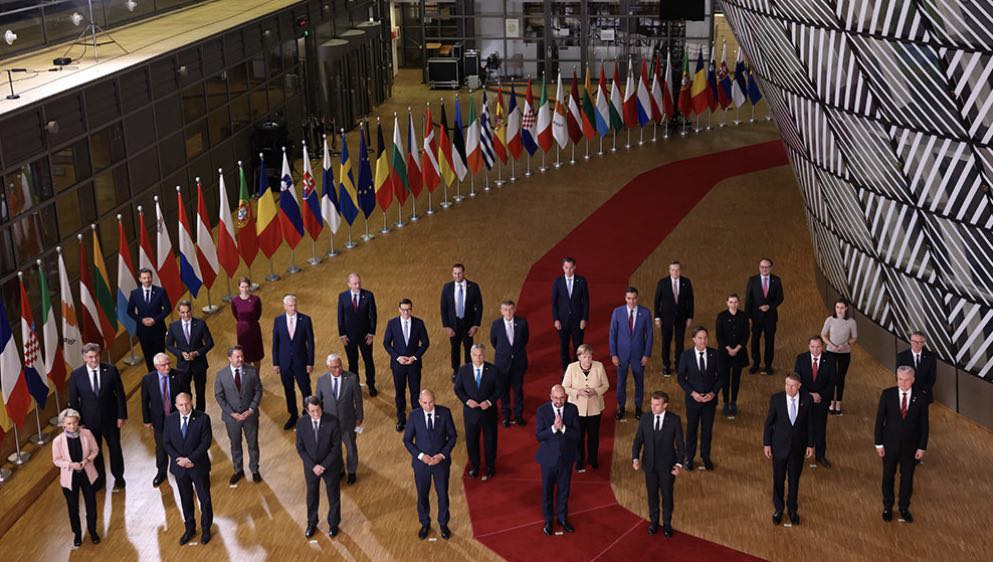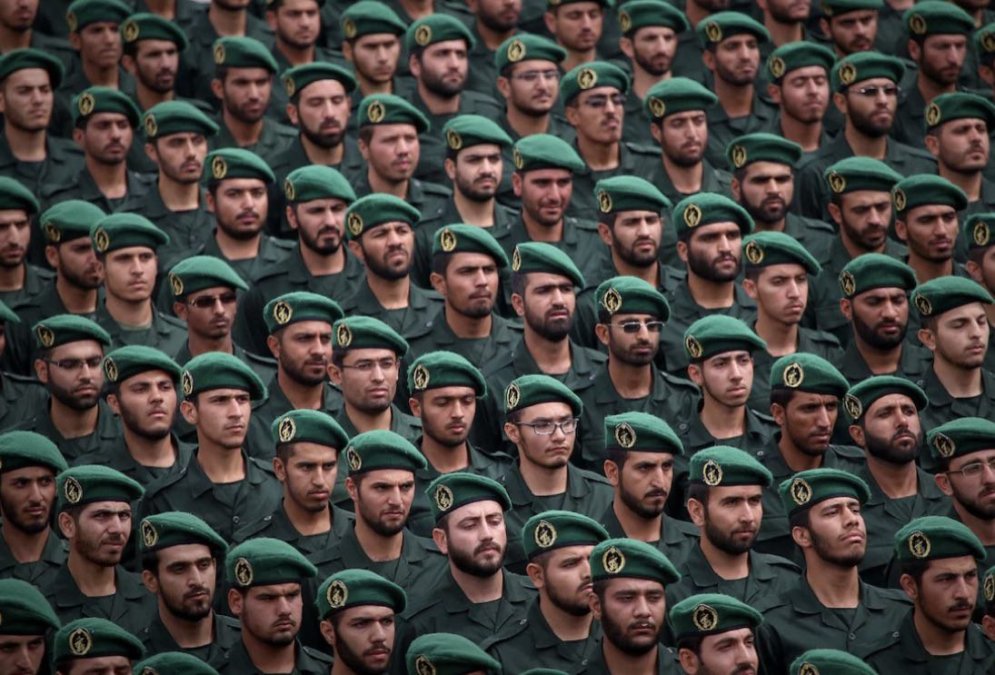The IRGC in the Position of ISIS or an Army
Once again, Iranians are set to gather on February 20 in front of the European Union Council of Ministers’ office to urge the council to list the IRGC as a terrorist organization, just like the European Parliament did.
Following the near-unanimous vote by the European Parliament on January 19 to recognize the IRGC as a terrorist organization, few could have guessed that this strong vote would not be endorsed by the Council of Ministers. Just four days later, when the issue reached the Council of Ministers, Josep Borrell, the EU’s foreign policy chief, stated that placing the IRGC on the EU’s terrorist groups list depends on a decision by one of the EU’s courts, which was contrary to the European Parliament’s stance.
Why didn’t Josep Borrell follow the path of the European Parliament? Does this indicate a rift within the Union? Is it only Josep Borrell who is cautious about this, or do other countries also have reservations?
The Supportive Vote of European Parliamentarians
It should not be forgotten that the European Parliament’s vote to label the IRGC as a terrorist organization is one of three similar votes by other European parliaments. First, it was the Dutch parliament on December 22, 2022, that passed a resolution calling for the EU to declare the IRGC a terrorist organization and urged the Dutch government to support this stance.
The second instance was when the UK House of Commons unanimously approved a motion on January 12, 2023, asking the government to list the IRGC as a terrorist organization. The third step was the European Parliament’s vote, which also had the support of Ursula von der Leyen, the President of the European Commission. She stated that she supports listing the IRGC as a terrorist organization in response to the violation of fundamental human rights in Iran.
However, the Union is Concerned about Closing Diplomatic Doors
So far, three legislative bodies in the Netherlands, the UK, and Europe have indeed regarded the IRGC as a terrorist organization, but a similar vote has yet to be approved by the Dutch and British governments and the EU Council of Ministers.
In other words, it wasn’t just Josep Borrell who refrained from making a similar decision on behalf of the EU Council of Ministers; the Dutch and British governments have also hesitated to express a similar opinion as their legislative bodies.
With this explanation, Borrell’s remarks should not be seen merely as a clumsy or disruptive personal stance. This has been the will of all European executive bodies to refrain from such a decision at this time. But why? The answer lies in two aspects: legal considerations and the political message.
The IRGC as an Official Military Force
According to the constitution of the Islamic Republic, the IRGC, like the army, is considered one of the country’s military forces. According to Dr. Saeed Mahmoudi, a legal expert, this characteristic makes the IRGC different from terrorist organizations like ISIS and Al-Qaeda. Those in the EU who have doubts see this feature as significant and believe that the IRGC is an arm of a political system’s government.
Therefore, if a governmental arm is considered a terrorist organization, the political system of that country will be considered terrorist. In other words, if the IRGC, which is under the command of the Supreme Leader, is deemed a terrorist entity, its commander, Ali Khamenei, will also be recognized as the leader of a terrorist organization.
In other words, the principle of legal equality of states in political immunity has provided this legal consideration for some countries and possibly Josep Borrell to refrain from recognizing the IRGC as a terrorist organization for now.
It should not be forgotten that at least three countries, the United States, Saudi Arabia, and Bahrain, have already listed the IRGC as a supporter of terrorism. Additionally, the Dutch, British, and European parliaments have ignored this mentioned legal consideration. Therefore, it is not unlikely that the EU Council of Ministers might also change its mind.
Despite this, an important point has been overlooked: this very legal reservation by Josep Borrell and some European countries, ironically, contains an unwritten yet strong political message to Tehran.
The Sword of Threat for Threat
The reality is that a significant blow has already been dealt to the Islamic Republic. The rift between Europe and the US during Trump’s era has been significantly repaired, and the Islamic Republic’s involvement in the Ukraine war has severely poisoned the atmosphere against Tehran. A look at the statements of Dutch, British, and European parliamentarians shows the deep-seated hatred against the Islamic Republic and specifically the IRGC.
Given this, Josep Borrell is also aware of this sense of hatred and disgust. However, it can be strongly believed that Borrell and the governments of the Netherlands and the UK, unlike their parliaments, did not want to close the door on diplomacy with Tehran. There is a saying that war begins when diplomacy ends.
Doubts and Fears

It seems that the Netherlands, the UK, and the EU still want to give diplomacy a chance so that both sides do not end up in confrontation. Recognizing the IRGC as a terrorist organization places this entity under the Islamic Republic directly in the same category as Al-Qaeda and ISIS. With such a development, each of its members becomes a legitimate target for elimination, similar to the fate of Qassem Soleimani.
The leader of the Islamic Republic, as the commander-in-chief, would practically be considered the commander of a terrorist organization and thus a legitimate target as well. Furthermore, countries would seek to cut off financial resources to that terrorist entity. Due to the IRGC’s significant role, unlike the army, in the fields of art, cinema, sports, culture, construction, espionage, and counter-espionage, cutting off the IRGC’s financial resources would practically harm a large part of the Islamic Republic’s structure.
Therefore, it seems that the three legislative bodies of the Netherlands, the UK, and Europe have delivered a clear and resonant message to the Islamic Republic: if the IRGC continues on its previous path, labeling it as a terrorist organization only requires a short meeting by the Dutch and British governments and the EU Council of Foreign Ministers. This means that the parliaments of the Netherlands, the UK, and Europe have practically loaded their weapons against the Islamic Republic, but the governments of the Netherlands and the UK and the EU Council have not yet fired.
Moreover, such a decision will not remain limited to these three. It is highly likely that Canada, Australia, New Zealand, Japan, South Korea, and other Western allies will join the ranks of countries that recognize the IRGC as a terrorist entity.
With this description, it seems that the hesitation to label the IRGC as a terrorist organization is to ensure that the path of diplomacy is not closed, so they can deter the IRGC and the Islamic Republic from hostile behavior internally against protesting citizens and from sympathetic actions with Moscow in the Ukraine war. This means that from now on, the ball is in the Islamic Republic’s court to decide whether it wants to reconsider its policies or not. If not, implementing the laws passed by the Dutch, British, and European parliaments only requires a short meeting.

